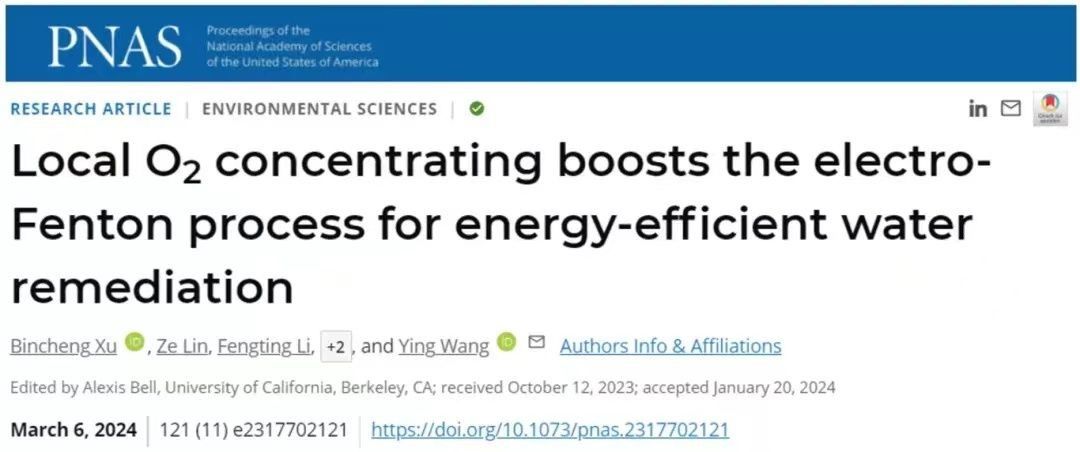On March 6, 2024, the research results of Professor Wang Ying's team from the School of Environmental Science and Engineering at Tongji University were published in the international authoritative academic journal “Proceedings of the National Academy of Sciences” (PNAS), with the paper titled "Local O2 concentrating boosts the electro-Fenton process for energy-efficient water remediation”.

Organic pollutants in water pose a serious threat to human health and the ecological environment. Electro-Fenton technology degrades various organic pollutants in water by electro-reducing natural oxygen to produce strong oxidizing reactive oxygen species, without the need for chemical reagents and with the potential to use renewable energy, showing great application prospects in the field of organic wastewater treatment. However, due to the low solubility and slow diffusion of oxygen in water, the treatment efficiency of electro-Fenton technology is limited. Although aeration methods can improve oxygen supply, this method leads to more than 75% of electrical energy being consumed by aeration, and less than 1% of oxygen is effectively utilized. How to improve the oxygen utilization rate in electro-Fenton process has become a key issue in reducing energy consumption.